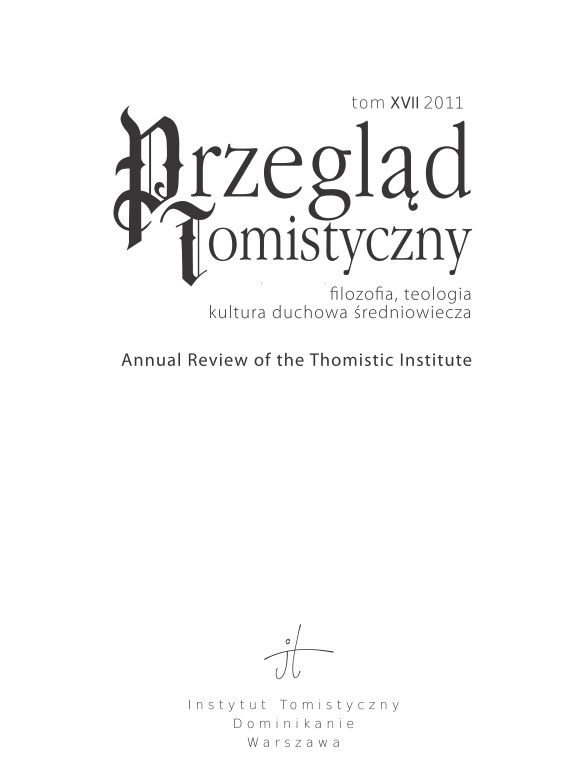GIOVANNI PAOLO MAGGIONI, RICCARDO QUINTO, Is It Admissible for a Man to Will Differently from God (If, Indeed, He Knows What God Wills)? A Critical Edition of a Theological Quaestio by Stephen Langton († 1228)

Tom XVII: 2011
Filozofia — Teologia— Kultura duchowa średniowiecza
ISSN 0860-0015
e-ISSN 2544-1000
SUMMARY
In the article one of Stephen Langton’s Quaestiones theologiae is published in a critical edition. The quaestio is devoted to the problem Vtrum homo licite possit uelle contrarium eius quod scit deum uelle and occupies position n° 18 in an index of Langton’s Quaestiones found in MS Cambridge, St. John’s College Library, C 7. In fact, if we were to order Langton’s Quaestiones as if they were discussing the topics found in Peter Lombard’s four books of Sentences, this quaestio would belong to Book I, more precisely to a section of the work where some attributes of the one God are discussed (after an account of the mystery of the Trinity has been given). The problem arises from the consideration of the divine attribute “will”, where such questions occur as whether divine will is always fulfilled, or whether man is bound to will all that God wants (given that God’s will is known by man). The article consists of a text-critical introduction followed by an edition of the three preserved versions of the quaestio. In the introduction it is argued that the three versions transmitted in the manuscript tradition all depend upon a unique disputation presided over by Langton in his school. The presence of three versions is explained by assuming that the disputation was recorded by two different scribes (reportatores), giving origin to two different written records of it (reportationes). The first reportatio (= reportatio b) has been elaborated into a text transmitted by a first textual family (= family φ); the second reportatio (= reportatio a) has been elaborated into two different texts, one transmitted by a second textual family (= family ψ) and one transmitted by a single MS. The different versions are published according to the strict rules of critical edition, without trying to produce a unique text harmonizing the three reportationes, but rather leaving them as the manuscript tradition has delivered them to us, in the conviction that each version represents a reception of the single oral performance that, in its actual wording, is irreparably lost.
